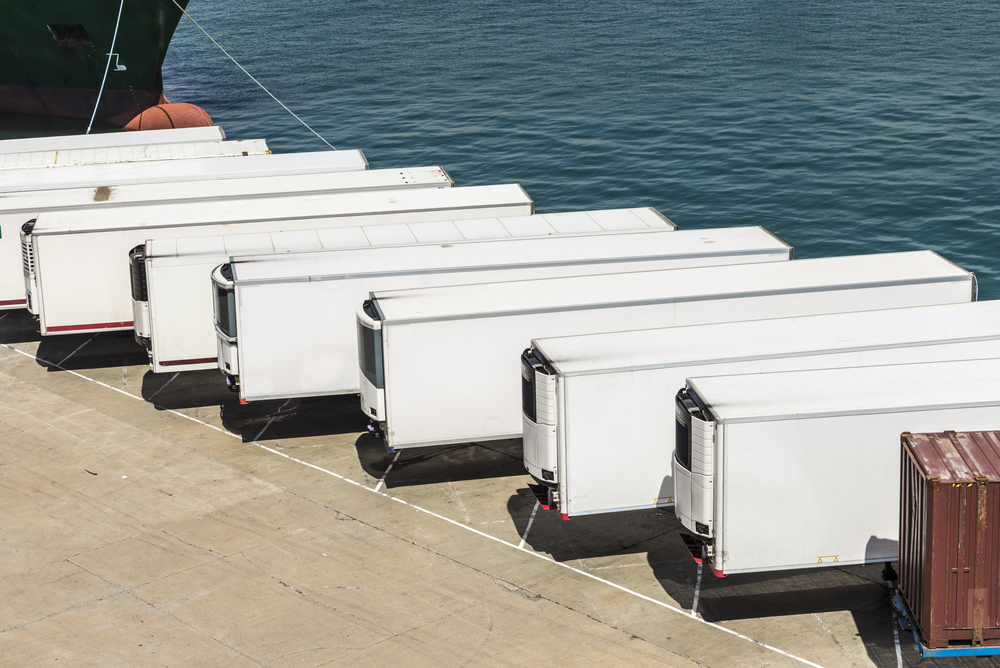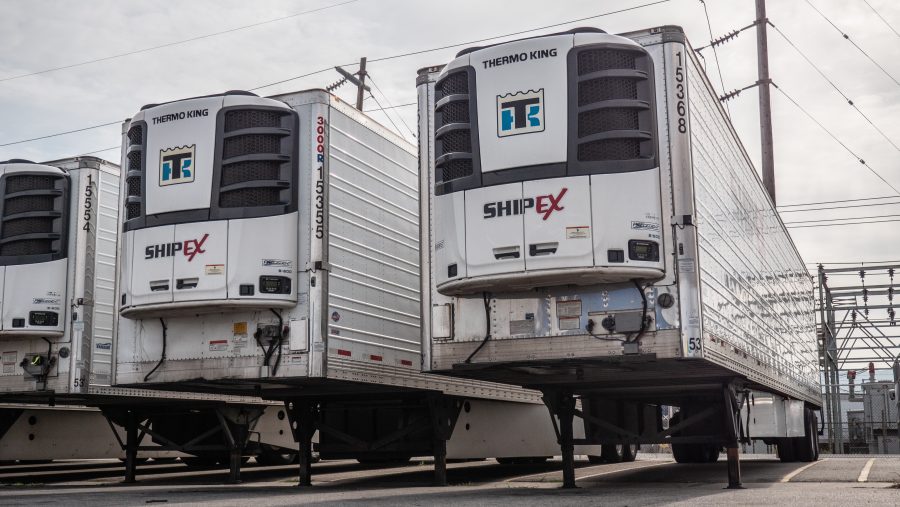Introduction
As a truck driver, you need to understand the difference between dry van and reefer trucking. Both types of trucking are important to the industry but serve different purposes and require different equipment and knowledge. A dry van is used for nonperishable goods and items that don’t need temperature control, it’s good for general freight. A reefer trailer or refrigerated trailer is used for hauling perishable goods that need to be kept at specific temperatures. This difference affects not only the type of cargo you can haul but also the operational procedures and responsibilities of the driver.
For truck drivers, it’s important for several reasons. First, the type of trailer determines the cargo they can haul which in turn affects their scheduling and delivery routes. For example, dry van shipping allows for more delivery destinations without the need for specialized infrastructure, and reefer trucking has stricter delivery windows and specialized unloading facilities to maintain product quality. Secondly knowing the specific maintenance requirements for each type of trailer, like refrigeration units in reefer trailers, so drivers can maintain their equipment properly and prevent costly breakdowns.
What is Dry Van Trucking?
Dry van trucking is a type of freight transportation that uses fully enclosed trailers with no refrigeration. Dry vans are used to haul goods that don’t need temperature control, it’s good for general freight. A typical dry van trailer is fully enclosed and protects against bad weather, theft, and moisture.
This type of trailer is good for hauling dry van freight which includes nonperishable foods, building materials, furniture, electronics, and machinery. By keeping the cargo safe from external conditions dry van trucking ensures the goods arrive at their destination in the same condition as when they were loaded.
One of the benefits of using dry vans is they protect the freight from bad weather and potential theft. The fully enclosed trailer means they are secure for the cargo, that’s why they’re the preferred choice for hauling high-value items. Dry van trucking also prevents moisture from affecting the goods, which is important when hauling electronics or nonperishable food. That’s why many shippers choose dry van trailers to move their loose freight.
What is Reefer Trucking?
Reefer trucking is the transportation of perishable goods using specialized vehicles called reefer trailers. These trailers have refrigeration units, and reefer units, that control the temperature to keep the goods within a specific temperature range.
This is important to maintain the quality and safety of perishable items like food, pharmaceuticals, and other cold chain products. Reefer trucks and straight trucks with temperature-controlled trailers allow for consistent delivery of fresh and frozen goods regardless of external weather conditions.
Reefer trailers have many advantages in the logistics industry. They protect the shipment from temperature fluctuations, so the products stay within the required temperature range during the journey. This is important for hauling perishable goods that can spoil or become unsafe if exposed to wrong temperatures. Having temperature control reefer units helps maintain the integrity of the shipment, reduces waste and spoilage
Dry Van vs Reefer Trucking
Temperature Control
Dry Van: Dry van trailers don’t have temperature control, good for hauling nonperishable items. This type of trailer is good for goods that don’t need a controlled environment to maintain their quality during transit.
Reefer: Reefer trailers or refrigerated trailers have temperature control systems. These systems allow for hauling of perishable items that need to be kept at specific temperatures to prevent spoilage. Common cargo includes perishable foods, frozen goods, and pharmaceuticals, so they arrive in good condition.
Types of Cargo
Dry Van: Dry van trailers are general purpose and can haul nonperishable goods. Typical cargo includes nonperishable foods, building materials, electronics, and furniture. These items don’t need temperature control, dry vans are cost-effective for many types of shipments.
Reefer: Reefer trailers are needed for hauling perishable goods that need to stay cold or frozen. This includes fresh produce, frozen foods, and sensitive pharmaceuticals. The ability to control the trailer’s temperature ensures these goods are delivered safely and in good condition.
Trailer Design
Dry Van: Dry van trailers are basic, fully enclosed units without refrigeration. They protect the cargo from the elements but have no temperature control features.
Reefer: Reefer trailers are designed with refrigeration units to have temperature control. These units can maintain a range of temperatures, good for hauling temperature-sensitive cargo.
Loading and Unloading
Dry Van: Loading and unloading dry van trailers is generally faster and easier than reefer trailers. Since there’s no temperature control to manage, the process is straightforward and good for many types of cargo.
Reefer: Reefer trailers require more careful handling during loading and unloading to maintain the required temperature. Keeping the trailer within the correct temperature range is critical to prevent damage to the perishable goods inside.
Operational Considerations
Cost
When it comes to cost, the difference between a dry van and a reefer is huge. Dry vans are cheaper to operate and maintain because of their simpler design and no specialized equipment. This means less money spent on initial purchases and ongoing expenses. Reefer on the other hand has higher cost mainly because of the refrigeration equipment and the additional fuel to keep the cargo at the correct temperature. These factors contribute to the higher overall cost of reefer trucks.
Maintenance
Maintenance needs also vary between dry vans and reefers. Dry vans have lower maintenance requirements, making them more cost-effective in terms of maintenance. No refrigeration units mean simpler maintenance routines and less chance of equipment failure. Reefer on the other hand requires regular maintenance for its refrigeration units to function properly. This regular maintenance is critical to prevent breakdowns and to ensure the refrigeration unit runs efficiently, to protect the temperature-sensitive cargo.
Job Demand
Both dry vans and reefers have high job demand but serve different industries. Dry vans are in constant demand for general freight hauling, making it a general-purpose option for drivers and companies. High demand for general freight means there are always jobs available for drivers. Reefer on the other hand is in demand in industries like food and pharmaceuticals where temperature control is critical. This specialized demand means steady job opportunities for drivers and companies that can handle these services, especially in industries that require precise temperature control and reliable service.
What Trucking Type is Right for Your Business
When choosing the right trucking type for your business, consider the type of cargo you need to haul, your budget, and your maintenance capacity. If you haul general freight, a dry van might be the most cost-effective and simplest option, with enough capacity to haul many types of cargo without the need for specialized equipment.
If you haul temperature-sensitive items, investing in a reefer truck is a must despite the higher initial cost and maintenance requirements. By matching your trucking type to your business needs, you can haul efficiently and reliably while managing costs.
Each trucking type has its own benefits suited to different business needs. For example, dry vans are good for businesses looking for a general-purpose transport solution with lower operational and maintenance costs. Its simplicity and capacity make it good for many types of cargo, easy to use, and flexible.
Reefer trucks are a must for businesses in the food and pharmaceutical industry where temperature control during transport is critical. Although it has a higher cost, preserving the integrity of perishable goods is a big benefit for businesses that rely on the safe and on-time delivery of their products.
Summary
Choosing the right trucking type for your business means understanding the cost, maintenance, and job demand difference between dry vans and reefers. By considering the type of cargo you haul, your budget, and your maintenance capacity, you can choose the right trucking option for you. This decision is critical to your shipping operations and to ensure efficient and reliable delivery of your products. Knowing the difference helps you make informed decisions and also boosts your business efficiency and service.






